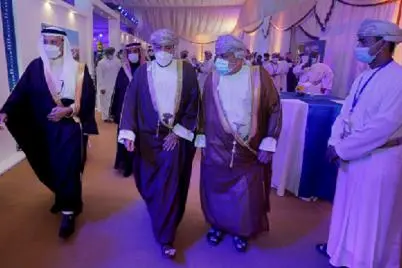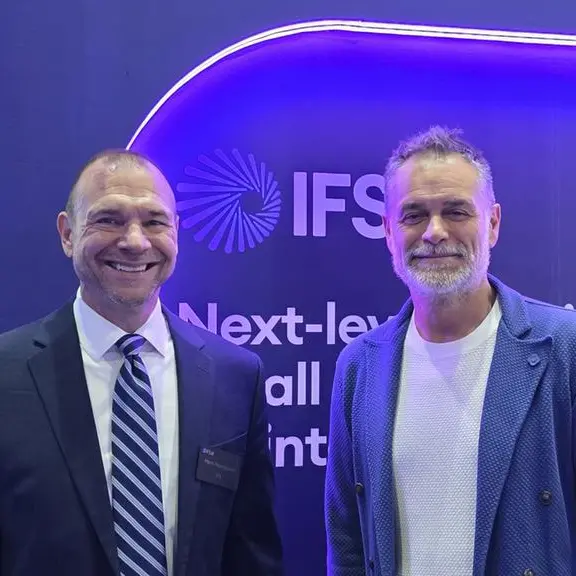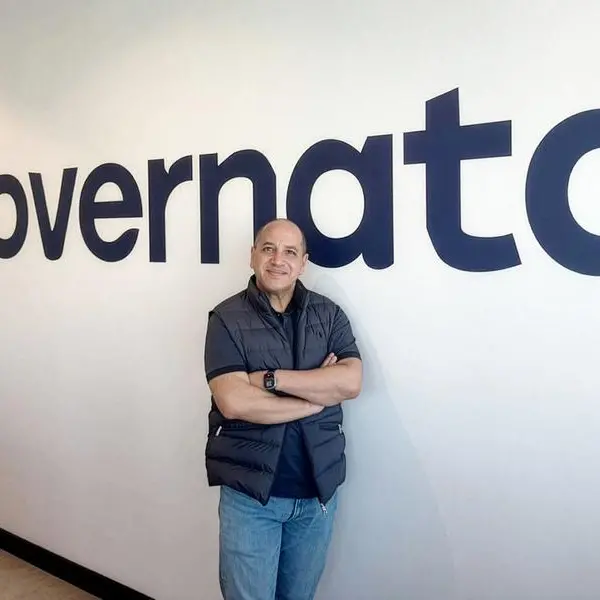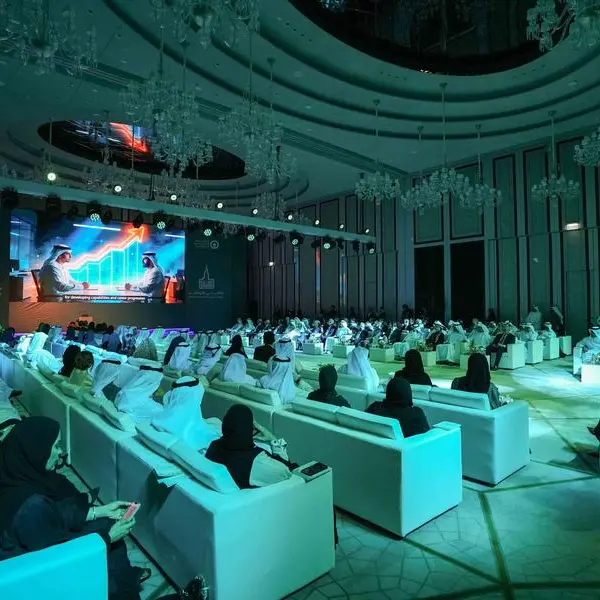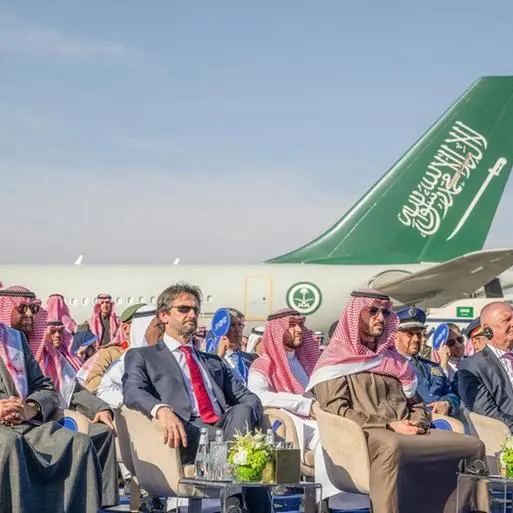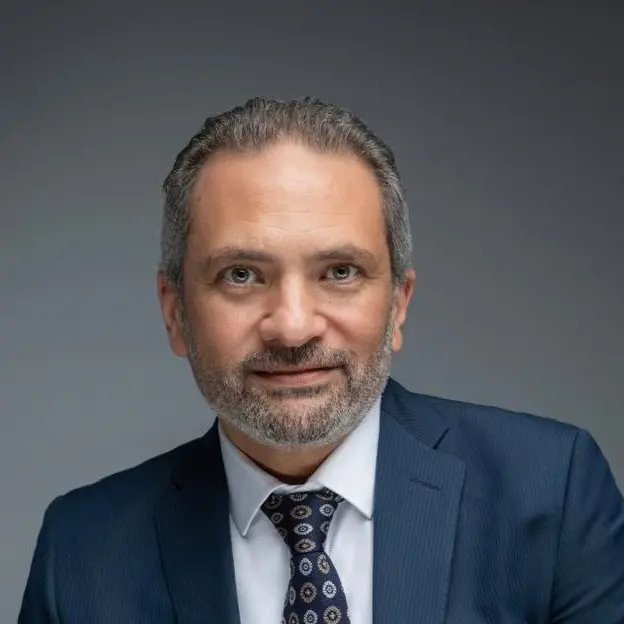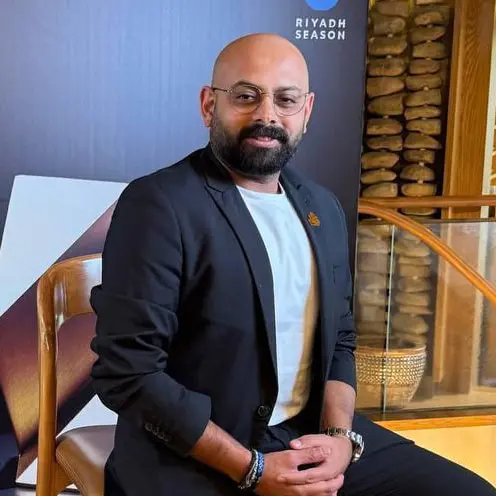PHOTO
- Ibri 2 is the first solar IPP to connect to the main national grid
- The US$417 million solar plant with a capacity of 500 MW completed construction within 13 months at the highest health and safety standards
- The project will supply an estimated 50,000 homes with electricity and will offset 340,000 tonnes of carbon dioxide emissions a year
Muscat, Sultanate of Oman: Under the patronage of His Excellency Sayyid Hamoud bin Faisal al Busaidi, Omani Minister of Interior, and in the presence of His Excellency Eng. Khalid bin Abdulaziz Al-Falih, Saudi Minister of Investment, a consortium consisting of ACWA Power - a leading developer, investor and operator of power generation, desalinated water and green hydrogen plants - Gulf Investment Corporation (“GIC”), and Alternative Energy Projects Co. (“AEPC”), today inaugurated Ibri 2, the first solar independent power project (IPP) to be launched under the country’s national renewable energy programme and connected to the main national grid. The consortium will produce renewable energy over a 15-year period for the Oman Power and Water Procurement Company (OPWP).
The project is a significant step towards achieving the Oman 2040 Vision, which includes 20% of renewable energy production by 2030 and up to 39% by 2040, as well as protecting natural resources in the Sultanate. Ibri 2 also represents a robust partnership between the public and private sectors and embodies another example of the Sultanate’s ability to attract foreign direct investment within the framework of a clear and transparent legal, legislative, and regulatory environment under the umbrella of the Omani Power Sector Regulation and Privatisation Law.
At an investment of US$417 million (160 million Omani rials), Ibri 2 is Oman’s largest utility-scale renewable energy project. The project was developed on a build, own, operate (BOO) basis, which utilises solar photovoltaic technology to generate 500 MW of renewable power. Construction was completed in 13 months only at the highest health and safety standards, with 5 million safe man-hours, despite disruptions to the supply chain as a result of the pandemic.
Mohammad Abunayyan, Chairman of ACWA Power, said: “As a company that is driving the transition globally, we are extremely proud to play a key role in supporting the Sultanate of Oman’s ambitious Vision 2040 energy transition goals. Since our market entry into Oman in 2011, we have brought in significant foreign direct investment, because we believe strongly in its vision and future. Together with our partners Gulf Investment Corporation and Alternative Energy Projects Co., we have leveraged our combined strengths in investments, industry expertise and technological know-how to achieve the rapid and successful completion of the milestone IBRI 2 project, despite challenging conditions imposed by the COVID-19 pandemic. I would like to take this opportunity to thank the Government of Saudi Arabia for their relentless support in enabling the development of the project in record time.”
“As we look ahead, partnerships, and solutions like we have introduced at Ibri 2, will be crucial in solving the real-world problems associated with climate change, and ensure that together we realise a greener future,” Abunayyan added.
At peak generation capacity, the plant output will be enough to supply an estimated 50,000 homes with electricity and will offset 340,000 tonnes of carbon dioxide emissions a year. In addition to efficiently delivering clean energy to the main national grid, the Ibri 2 PV IPP project will create tangible socioeconomic value keeping local content in mind, offering local graduates on-the-job training and job opportunities. As part of the project supply chain, two local start-ups—Taj Middle East and Diaa Energy—were contracted to build mechanical installations. Additionally, the project’s operations and maintenance team has achieved a 100% Omanisation rate.
Eng. Yaqoob Saif Al Kiyumi, CEO of the Oman Energy and Water Procurement Company, said: “The milestone project is a remarkable achievement that delivers on the national priorities set by Oman Vision 2040, which entail environmental conservation, utilisation of natural resources, the development of governorates, and the integration of the private sector. Ibri 2 will be a turning point for launching similar projects in the field of renewable energy, and similarly, we are currently developing two solar plants in the Governorate of Ad Dakhiliyah with a total capacity of 1,000 MW, in addition to wind projects in the governorates of North Al Sharqiyah and Al Wusta.”
Eng. Yahya bin Muhammad Al-Rawahi, Chief Executive Officer of Shams Ad-Dhahirah Generating Company, added: “I am truly proud to be a part of an exceptional Omani and international team that that has successfully achieved this milestone in an incredible short span of 13 months during peak COVID pandemic times, and amid global supply chain disruptions. With Ibri 2, we have demonstrated immensely strong project development capabilities, as this is the largest solar PV power plant in my country, that also incorporates the most advanced technological solutions in the world. I am confident that it will lead the way in contributing significantly towards Oman’s clean energy ambitions for the future.”
Located in Ad-Dhahirah Governorate, Ibri 2 PV IPP comprises of approximately 1.5 million bi-facial solar panels and extends over an area of 13 million square metres.
ACWA Power has had a presence in Oman since 2011, bringing over US$2.6billion Foreign Direct Investment (FDI) into the country over the last decade. Along with Ibri 2 PV IPP, the company has an additional seven projects in operation or in development in the Sultanate.
-Ends-
About ACWA Power
ACWA Power (TADAWUL:2082) is a developer, investor and operator of power generation, desalinated water and green hydrogen production plants. Registered and established in 2004 in Riyadh, Saudi Arabia; ACWA Power employs about 3,500 people and is currently present in 13 countries in the Middle East, Africa, Central Asia and Southeast Asia. ACWA Power’s portfolio includes 66 assets with an investment value of SAR 252 billion (USD 67.2), producing 42.8 GW of power and 6.4 million m3/day of desalinated water delivered on a bulk basis to address the needs of state utilities and industries on long term, off-taker contracts under utility services outsourcing and Public-Private-Partnership models.
ACWA Power’s mission is to deliver electricity and desalinated water reliably and responsibly at a low cost, thereby contributing effectively to the sustainable, social and economic development of communities.
Media contact details:
Mohamed Yousef Ibrahim
Senior Manager – Marketing & Public Relations
mibrahim@acwapower.com
+966(0)556607402
© Press Release 2022
Disclaimer: The contents of this press release was provided from an external third party provider. This website is not responsible for, and does not control, such external content. This content is provided on an “as is” and “as available” basis and has not been edited in any way. Neither this website nor our affiliates guarantee the accuracy of or endorse the views or opinions expressed in this press release.
The press release is provided for informational purposes only. The content does not provide tax, legal or investment advice or opinion regarding the suitability, value or profitability of any particular security, portfolio or investment strategy. Neither this website nor our affiliates shall be liable for any errors or inaccuracies in the content, or for any actions taken by you in reliance thereon. You expressly agree that your use of the information within this article is at your sole risk.
To the fullest extent permitted by applicable law, this website, its parent company, its subsidiaries, its affiliates and the respective shareholders, directors, officers, employees, agents, advertisers, content providers and licensors will not be liable (jointly or severally) to you for any direct, indirect, consequential, special, incidental, punitive or exemplary damages, including without limitation, lost profits, lost savings and lost revenues, whether in negligence, tort, contract or any other theory of liability, even if the parties have been advised of the possibility or could have foreseen any such damages.
